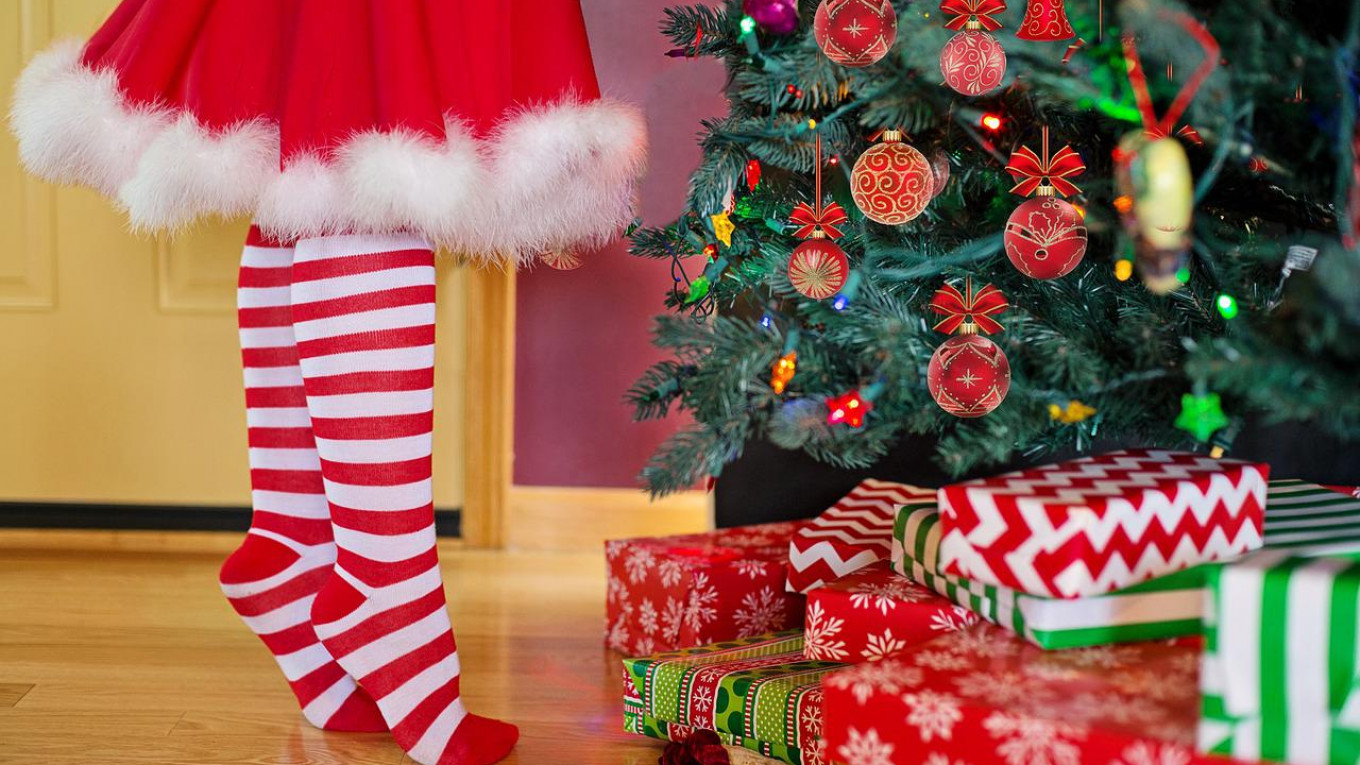Сочельник: the night before Christmas
Unless you have been buried under the usual horrendous pre-holiday work load or sleeping on the floor of a snowed-in European airport, you know that this week saw a rare coincidence of cosmic phenomena: полнолуние (full moon) combined with лунное затмение (lunar eclipse) at the moment of зимнее солнцестояние (winter solstice). A millennium or two ago, Slavic tribes might have seen this as the end of the world. Today, many Russians saw it as a Very Bad Sign and strongly advised a day of quiet indoor activities, hot soup, and vodka. I complied. Who am I to argue with Russians about celestial omens?
One of my boozy indoor activities was reading up on how pagan winter solstice practices blended with Christmas celebrations into a mix of piety, revelry and ritualistic food. Since the ancient pagans didn’t leave written records, speculation varies, but most scholars agree that the pre-Christian inhabitants of Russia celebrated the start of the new solar year joyfully. But they regarded the period of солнцестояние (solstice or “sun stoppage”) as one of those creepy in-between times when all kinds of malevolent spirits and souls of the dead could slip into the here-and-now. To counter the bad vibes, they made foods of grain that celebrated the fertile earth, like кутья (a sweetened grain dish), or various sun-shaped, pancakey things, like сочни (berry fritters), блины (blinis) and оладьи (thick pancakes).
When Christianity came to the Russian lands, the peasants saw the “rebirth” of the sun as a metaphor for the birth of Christ, and they called Christ Солнце Правды (the Sun of Truth). They kept their ritual foods and called Christmas Eve сочельник, from that fruity fritter called сочень. (In the north, Christmas Eve was called кутейник, from кутья.) The notion of “in-between” time became святки (yuletide), the “twelve days of Christmas” from December 25 until Epiphany on January 6 (before the calendar changes shifted the celebrations ahead 12 days). They lit bonfires both to announce the coming of Christ and to warm the souls of the departed, who had slipped into this world when the sun stopped.
They transformed the Latin word “calendae” (the first day of the month) into коляда to describe the songs ritually sung. These songs were part Christmas carol and part folk ditty with a hefty dose of good wishes for the new (solar) year. Колядовщики колядовали — that is, revelers went from house to house, singing songs of Christ’s coming and blessing the house. The householders thanked the singers and treated them, often with козульки (also called коровки) — cookies made in the shape of animals (like a goat – коза — or cow — корова) and birds. In this version of trick or treat, if the householders were miserly, the revelers switched song gears and extended hearty bad wishes for the coming year.
The joy of the Christmas season combined with the enjoyment of the previous year’s harvest in this agricultural downtime made for feasts and merriment, especially for young people. Ряженые (mummers) pranced around the villages at игрища (something like “fun and games”). But the notion of “in-between” time from the pagan past meant that sometimes the costumes got a bit too devilish, and the fun and games got more than slightly erotic. But happily, everyone could sober up and wash away their sins with a dip in a freezing lake or river on Jan. 6.
From time to time, the Church (and presumably worried parents) cracked down on over-the-top колядование (yuletide revelry). What they failed to prohibit died away under the onslaught of Soviet campaigns against religion and superstition. Now Russians like to celebrate the season with pop songs.
Except for me. I’m making козульки. Got to get ready for a happy new solar year.
Michele A. Berdy is a Moscow-based translator and interpreter, whose collection of columns, “The Russian Word’s Worth,” is published by Glas.
A Message from The Moscow Times:
Dear readers,
We are facing unprecedented challenges. Russia's Prosecutor General's Office has designated The Moscow Times as an "undesirable" organization, criminalizing our work and putting our staff at risk of prosecution. This follows our earlier unjust labeling as a "foreign agent."
These actions are direct attempts to silence independent journalism in Russia. The authorities claim our work "discredits the decisions of the Russian leadership." We see things differently: we strive to provide accurate, unbiased reporting on Russia.
We, the journalists of The Moscow Times, refuse to be silenced. But to continue our work, we need your help.
Your support, no matter how small, makes a world of difference. If you can, please support us monthly starting from just $2. It's quick to set up, and every contribution makes a significant impact.
By supporting The Moscow Times, you're defending open, independent journalism in the face of repression. Thank you for standing with us.
Remind me later.








